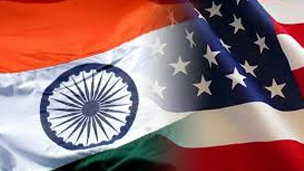The landmark India-US civil nuclear stalled over India’s 2010 nuclear liability law is finally moving forward with the Nuclear Power Corporation of India Ltd (NPCIL) and the Westinghouse Electric Company signing a preliminary commercial contract.
The landmark India-US civil nuclear stalled over India’s 2010 nuclear liability law is finally moving forward with the Nuclear Power Corporation of India Ltd (NPCIL) and the Westinghouse Electric Company signing a preliminary commercial contract.
The agreement on the first commercial deal was announced by President Barack Obama himself after his summit meeting on Friday with Indian Prime Minister Manmohan Singh at the White House oval office.
“We’ve made enormous progress on the issue of civilian nuclear power, and in fact, have been able to achieve just in the last few days an agreement on the first commercial agreement between a US company and India on civilian nuclear power,” he said.
A factsheet issued by the White House later said this agreement should facilitate progress toward licensing the AP-1000 nuclear reactor technology in India.
Noting that Indian government is planning to develop commercial nuclear power sites in Gujarat and Andhra Pradesh using US nuclear technology, it said both governments also decided to complete discussions on the Administrative Arrangements at an early date.
India plans to buy six of the Westinghouse-manufactured AP 1000 nuclear reactors in a deal worth about $ 14 billion for its nuclear power projectat Chayya-Mithivirdi in Gujarat, one of the two sites set aside for American firms under the nuclear deal.
The US Nuclear Regulatory Commission (NRC) and the Indian Atomic Energy Regulatory Board (AERB) also intend to sign a memorandum of understanding for the exchange of technical information in nuclear safety matters, it was announced
“This arrangement should solidify close cooperation between the regulators,” the factsheet said.
Noting that the two countries work closely on global non-proliferation and arms control, it said the US continues to support India’s full membership in the four multilateral export control regimes – Nuclear Suppliers Group, Missile Technology Control Regime, Wassenaar Arrangement, and Australia Group, in a phased manner.
US also welcomed India’s March 2013 update to its Special Chemicals, Organisms, Materials, Equipment, and Technology (SCOMET) list.
The United States and India also collaborate on nuclear security issues and look forward to working together in the lead up to the next Nuclear Security Summit to be held in The Hague in March 2014, the White House said.
-IANS





